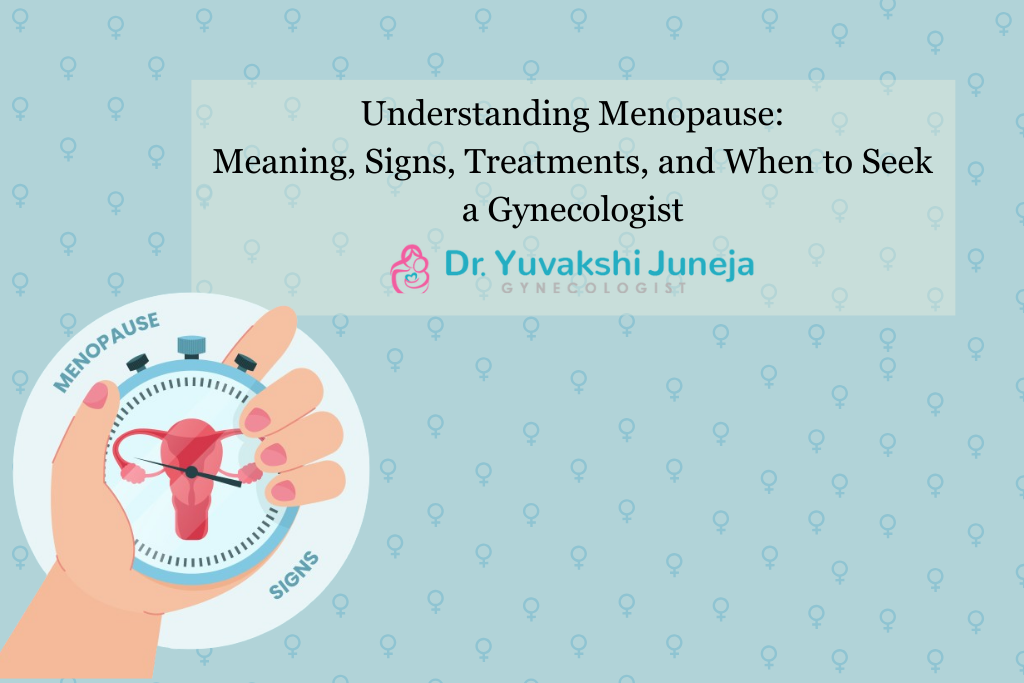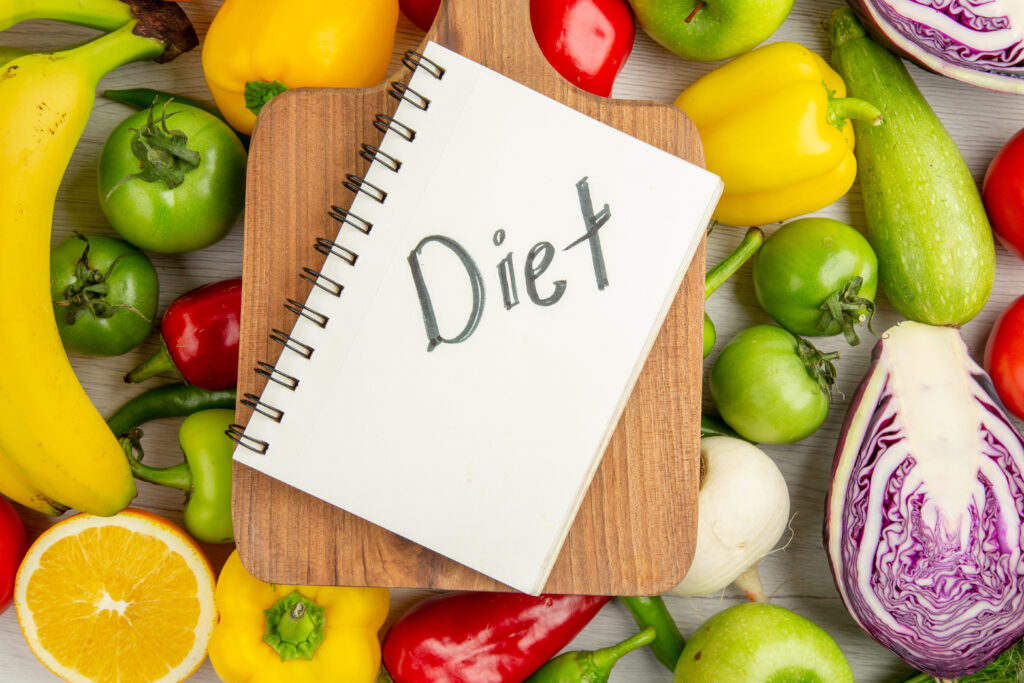Understanding Menopause: Meaning, Signs, Treatments, and When to Seek a Gynecologist

Let’s take a deep dive into the complex subject of menopause, right from the menopause meaning to symptoms and available treatments. Join us as we navigate the different aspects of menopause and its treatment and explore its impact on women’s lives.
Menopause Meaning
Menopause is a part of the biological process that women go through in their late 40s to early 50s. It signifies the completion of the women’s reproductive years. As women approach menopause, their ovaries produce less estrogen and progesterone, which leads to various physical and emotional changes.
It indicates the end of the menstrual cycle. This stage of a woman’s life signals a transition from fertility to infertility. But as menopause is a natural process, the changes to the body and emotions can vary from woman to woman. When a woman enters the menopause, she may experience various issues such as hot flashes, night sweats, mood swings, vaginal dryness, etc. All these are also considered signs and symptoms of menopause.
Three Stages of Menopause
Being a natural process, menopause occurs gradually in three different stages:
1. Perimenopause
Perimenopause generally starts in a woman’s 40s, but it can start early in her 30s. During this stage, the ovaries gradually produce less estrogen, leading to irregular periods, which is one of the common signs of menopause. It lasts up until the menopause. The point when the perimenopause stage ends and the menopause starts is marked by the absence of menstruation for 12 consecutive months.
2. Menopause
Menopause is the stage when the ovaries stop releasing eggs and the woman’s menstrual cycle stops completely. Along with that, the production of estrogen and progesterone significantly decreases. At this stage, getting in touch with the best gynecologist specializing in menopause can help the woman manage the symptoms and navigate easily through this transitional phase.
3. Postmenopause
This is the stage that comes after menopause and lasts for the rest of a woman’s life. During this stage, the signs of menopause start decreasing gradually. As a result of low estrogen levels, women in postmenopause are at a higher risk of various health conditions, such as heart disease. Women in this stage need to prioritize well-being by maintaining a healthy lifestyle, including regular exercise and a balanced nutritional diet.
At What Age Menopause Starts?
The average age of menopause is around 51 years old, but it can happen at any age between 45 and 55. However, some women may experience menopause earlier or later in their lives, depending on various factors such as genetics, diet, lifestyle, etc. These factors can impact the timing of menopause and may even cause it to occur earlier or later than the average age.
Menopause and It’s Treatment
Menopause and it’s treatment is important for women who are experiencing uncomfortable symptoms. Some women may even choose to manage their symptoms with lifestyle changes such as exercise and adopting a healthy lifestyle. Treating menopause also includes hormone replacement therapy (HRP) or medications prescribed by one of the best gynecologist in Delhi.
Women need to get in touch with a doctor and briefly provide an elaboration of the symptoms that they might experience during menopause. Every patient is different and has unique symptoms and needs. So, it’s important to have a personalized treatment plan that suits the signs and symptoms of your body. Additionally, taking alternative therapies such as acupuncture or herbal supplements can also be considered a reliable and efficient treatment option for menopause. But make sure to take it under proper guidance and after consulting a highly recommended gynecologist doctor in Chirag Enclave, New Delhi.
The Role of Nutrition in Menopause: Foods to Support Hormonal Balance

Regardless of whether your body is completely fit or if you are suffering from any disease, nutrition plays a crucial role in maintaining overall health and well-being. During menopause, it becomes even more crucial to focus on a healthy and balanced diet that supports hormonal balance and may help in reversing the symptoms of menopause.
For your reference, here is a list of the top foods that support hormonal balance in menopause:
- Seeds: Flex, sesame, and chia
- Nuts: almonds, pecans, and hazelnuts
- Tomatoes
- Bell Peppers
- Dairy products: milk, yogurt, and cheese
- Chickpeas, lentils, and beans
- Oranges, berries, and other green leafy vegetables
Make sure to add the above-listed food items to your daily diet chart. These will help you maintain hormonal balance and well-being during this stage.
When to Seek a Gynecologist?
If you are experiencing any critical symptoms related to hormonal imbalances, seeking the best gynecologist doctor in North India becomes crucial. An experienced doctor can help assess your symptoms and recommend appropriate treatment strategies. Additionally, if you are planning for hormone replacement therapy (HRP), then you should consult with a gynecologist. Ask your doctor various questions regarding the potential risks and benefits of HRT, as well as discuss alternative treatment options.
If you are facing issues during the menopause stage, then you should get in touch with Dr. Yuvakshi Juneja. She is a renowned gynecologist in Delhi known for her expertise in hormonal imbalances and menopause treatment. With her vast experience and knowledge, she can provide personalized care and guidance to reverse the signs and symptoms of menopause and improve overall well-being. So, don’t wait any longer and book an appointment now to discuss your concerns and explore the best treatment options for you with the utmost priority to your safety.
